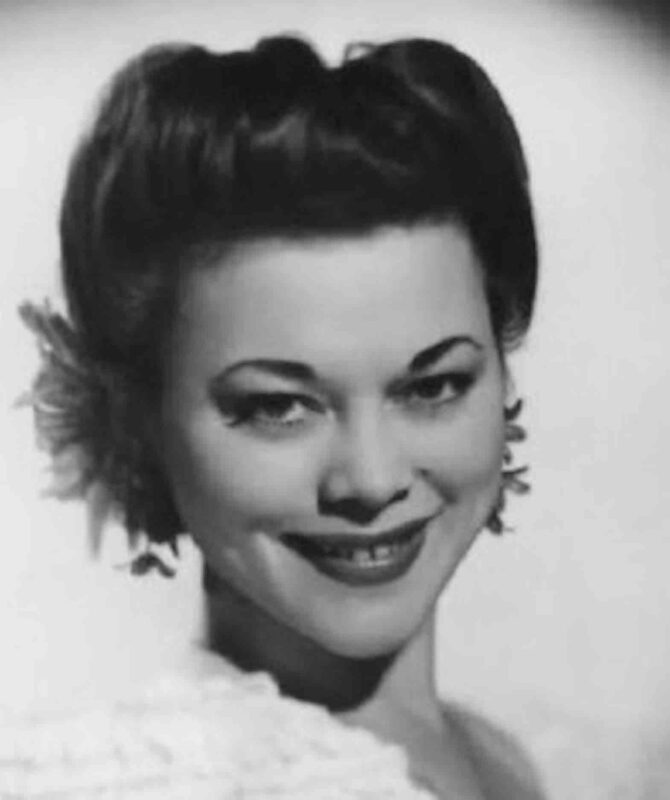NEW YORK—Not only did Everything Everywhere All at Once win an Oscar for best picture, so too did its directors and its lead Michelle Yeoh, the first Asian star to win, and deservedly so, best actress award in Oscar history.
In a guest essay for the March 10 issue of The New York Times, Katie Gee Salisbury—an Asian-American author and Hollywood historian—points out that Yeoh, probably best known for her martial arts movies and as a Bond girl, has “been making films for nearly four decades” and that Everything Everywhere All at Once was “released 100 years after Ms. [Anna May] Wong starred in Toll of the Sea.”

Rosario “Dimples” Cooper: The dream may have come true for Yeoh, but for Dimples the Dream Factory turned into a nightmare.
Salisbury goes on: “When Ms. Yeoh first read the script, she felt the film offered her the chance to show people ‘what I’m capable of,’ … To be funny, to be real, to be sad. Finally, somebody understood that I can do all these things.”
Salisbury mentions various Asian-American actors who early on gained a measure of fame in the Dream Factory, such as Sessue Hayakawa, the Japanese expatriate who in 1915, due to his role as a villain in Cecile B. DeMille’s silent film The Cheat, was the first Asian-American matinee idol—six years before Rudolph Valentino became the nation’s heartthrob for his star turn in The Sheik—and the cinematographer James Wong Howe, who went on to win an Oscar for his work in The Rose Tattoo. And in between, of course, was Anna May Wong, who garnered critical praise for her acting, even when limited to stereotypical Orientalizing roles.
As historically illuminating as the essay is, there is nary a mention of the Filipino actors who have been part of the Hollywood industry since the 1940s. I suppose that is understandable as Salisbury’s focus is on actors of East Asian origin, spotlighting the few who rose to fame during the early part of the last century.
There is a whole roster of Filipino and Filipino American actors who may not have A-List status within box-office oriented Hollywood—although that may soon be conferred on Dave Bautista, a former professional wrestler, featured in Marvel Cinematic Universe and Glass Onion—but have made a name for themselves, among them Lou Diamond Phillips, Lea Salonga, Tia Carrere, Dante Basco, and Joel de la Fuente. The latest probable star on the horizon is Dolly de Leon, with her impressive performance in Ruben Östlund’s satirical Triangle of Sadness.
Not as known as the current crop were two of the earliest Filipino actors working in Hollywood: Elizabeth Cooper, more familiarly known as Dimples Cooper, and Zorro David. The latter was cast in John Huston’s adaptation of Carson McCullers’s Reflections in a Golden Eye, as the openly queer domestic helper Anacleto, brought over from the Philippines (anticipating the tsunami of overseas Filipino workers beginning in the 1970s) to work in a military household. Directed by John Huston, the 1967 film starred Marlon Brando and Elizabeth Taylor. The contrast between Anacleto’s evident queerness and the repressed homosexuality of Brando’s character provides the fuel for the various conflicts that threaten to upend the characters’ lives.
Though written about and praised for his performance, David’s Hollywood career was unsurprisingly brief—he never got another film role. In real life a hair stylist, David later owned and operated a hair salon in the Times Square area and became an abstract painter. He died in Schaumburg, Illinois in 2008 at the age of 85. At the very least he had had a moment in the spotlight.
In contrast, the tale of Dimples Cooper is a heartbreaking one. She was a starlet in Philippine cinema, being the first to have an onscreen kiss in the 1926 film, Ang Tatlong Hambog (The Three Braggarts), at the age either of 12, 14, or 17—her exact birth date isn’t known. By 1930 she wound up as General Douglas MacArthur’s mistress. MacArthur was then stationed in Manila, where his father General Arthur MacArthur had fought in the 1899 Philippine-American War.
Shortly after, MacArthur was assigned to Washington, DC, as the Army Chief of Staff. He had Dimples follow him, but separately. It was an arrangement that had to be kept a secret, particularly from his mother, as the general was a mama’s boy. In 1932, due to a controversy arising from his orders to disperse violently World War I veterans’ protesting in the nation’s capital over their lack of benefits, and subsequent press write-ups especially in The Washington Post, MacArthur filed a defamation suit against the journalists. But Drew Pearson, one of the reporters, made it known that Dimples would be asked to testify at the trial, prompting MacArthur to drop the suit.
MacArthur unceremoniously dumped Cooper, allegedly giving her $15,000 to return to the islands, but Cooper, instead, moved in 1934 to the Midwest where she owned a hairdressing salon, before moving to La-La-Land several years later, still lured by the bright lights and the promise of a glam life. But, no surprise, all this Asian woman could get in Hollywood were bit roles, such as, in 1946, one of Rex Harrison’s concubines in Anna and the King of Siam. Other forgettable roles followed in The Chinese Ring (1947), The Art of Burlesque (1950), and I Was an American Spy (1951).
Realizing that she could never break that glass ceiling, Cooper took her own life in 1960. The dream may have come true for Yeoh, but for Dimples the Dream Factory turned into a nightmare. A tragic ending and emblematic of all those lured to these shores only to find dust in the wind rather than gold in the streets.
Copyright L.H. Francia 2023

